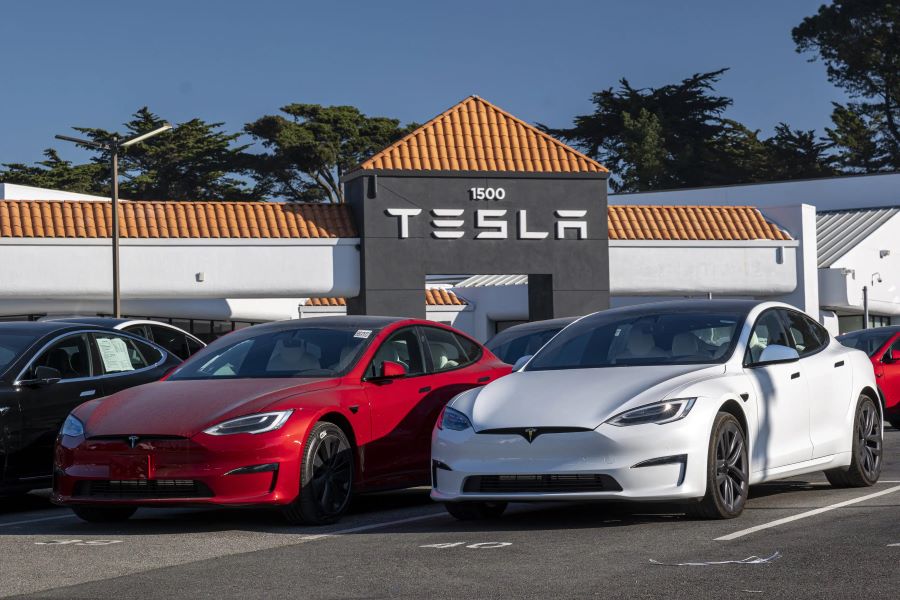Technology
EU Enforces New Digital Competition Law with Apple Compliance Case
EU Enforces the European Union has accused Apple (AAPL) of failing to comply with its new digital competition law, the Digital Markets Act (DMA). The EU asserts that Apple’s App Store restricts developers from directing customers to alternative purchasing methods, thereby stifling competition and limiting consumer choice. This enforcement action highlights the EU’s commitment to ensuring fair competition in the digital marketplace and holding major tech companies accountable to its regulatory standards.
First Charges Under the DMA
The charges, revealed on Monday, are the first to be brought under the DMA, which came into effect earlier this year. This legislation is designed to enhance competition in digital advertising, online search, and app ecosystems.
If EU regulators conclude that Apple violated the DMA’s stipulations, the company could face fines of up to 10% of its global revenue.
Apple’s potential 10% global revenue fine under DMA reflects EU’s strict stance on tech giants, acording to Barron’s Subscription
Apple’s Regulatory Challenges
These charges solidify Apple’s position as the tech company most aggressively targeted by EU regulators under the new law. This follows a separate case in March where the EU fined Apple approximately $2 billion using traditional antitrust measures to address concerns related to the App Store.
Globally, Apple faces numerous regulatory challenges. Earlier this year, the U.S. Department of Justice sued Apple over allegations that the company obstructs competitors from integrating with the iPhone, leading to higher prices for consumers. Apple has stated it will vigorously contest the U.S. lawsuit

Tesla Faces Pressure Ahead of Q2 Delivery Report
Tesla is gearing up to unveil its second-quarter delivery numbers, and all eyes are on whether the electric vehicle giant can meet Wall…
Potential Risks of EU’s Stringent Tech Regulations
Europe’s stringent tech regulation approach carries potential risks. For instance, Apple recently indicated it might not introduce artificial intelligence features in Europe due to regulatory concerns. The European Commission has stated that tech companies are welcome to operate in Europe if they comply with EU regulations.
In response to the EU charges, Apple announced on Monday that it has made recent changes to comply with the DMA based on feedback from app developers and EU regulators. “We are confident our plan complies with the law,” the company stated, adding that it would continue to engage with regulators.
EU’s Allegations Against Apple
European competition authorities assert that Apple’s App Store rules forbid developers from displaying pricing information in apps. They also restrict developers from freely communicating with customers about offers outside the App Store. Furthermore, the bloc highlighted Apple’s practice of charging fees for transactions outside the App Store that exceed reasonable costs.
EU competition chief Margrethe Vestager emphasized at a Netherlands conference that the DMA aims for an open, contestable market. She remarked, “It is surprising that some of the most valuable, respected big companies on this planet do not take compliance as a badge of honor.”
Ongoing Investigations and Future Implications
Monday’s charges, which the EU terms preliminary findings, follow an investigation into Apple’s App Store rules initiated in March. At that time, regulators also began probes into Meta and Google’s compliance with the law.
The EU’s digital competition regulations, enforced by the Digital Markets Act (DMA), target market dominance by large tech companies. Unlike traditional antitrust cases, which can span years, the DMA allows regulators to swiftly address suspected anticompetitive practices. The EU aims to conclude investigations under this legislation within a year, prioritizing efficiency in addressing market issues.
Vestager highlighted the DMA’s scrutiny of large tech companies’ business models as crucial. She pointed out that Apple faces unique challenges in opening up to competitors. This is partly due to the deeply integrated nature of its products.
Next Steps for Apple
The EU outlined that the charges against Apple are a preliminary view alleging a breach of the DMA. This does not guarantee Apple will ultimately be found guilty. Apple will be able to review and respond to these findings during the process. Additionally, the EU enforces new regulations that impact tech giants’ market practices.
The European Commission plans to decide on Apple’s noncompliance by late March 2025, pending confirmed findings. Additionally, the EU will launch a new investigation into Apple’s App Store business model in Europe. This probe aims to scrutinize a core technology fee. Some developers argue this fee could restrict their ability to seize new opportunities under the DMA.
Subscribe now for a 3-year journey of financial enlightenment with Bloomberg News and The Wall Street Journal. Enjoy an extraordinary 77% discount and unite these influential subscriptions for a wealth of invaluable insights. Don’t miss out on this incredible opportunity!

